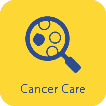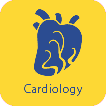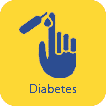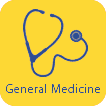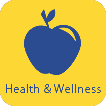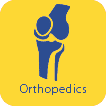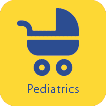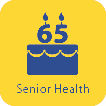Over 50? Get Screened
Aging is inevitable but there are many steps we can take to make the most of our senior years. Regular preventative medical care is important to catch medical conditions early when they can be more easily treated. This includes blood pressure checks, colonoscopies, mammograms, prostate screening and bone density screening. Dental and ophthalmologic check-ups are also important. A healthy diet, regular exercise, avoiding smoking, moderating alcohol consumption, participating in healthy family and social interactions, goal-oriented purposeful living, faith and spirituality can all help us live proactively to maintain the lifestyles we want. Details about the normal signs of aging by Dr. Matthew Personius are here.
The National Colorectal Cancer Action Campaign from the Centers for Disease Control and Prevention designed, recommends men and women, aged 50 years or older, have regular colorectal cancer screening tests. Having regular screening tests, beginning at age 50, could save your life. Screening tests can find colorectal cancer early, when treatment works best and the chance for a full recovery is very high. For more information on Screen for Life, visit www.cdc.gov
Dr. Matthew Personius is a family practice physician who specializes in caring for the elderly. His practice, Sierra Housecalls Medical Group, Inc., (SHMG) is focused on providing greater access to needed medical services for the elderly and homebound of Tuolumne County.
Dr. Personius says;
Prostate enlargement in men is extremely common. The prostate is a male gland which is located beneath the bladder and surrounds the urethra. The prostate grows throughout most of a man’s life and many wind up with symptoms as the gland presses on the urethra. According to the National Institutes of Health, more than half of men in their 60s and as many as 90 percent in their 70s and 80s have some problems with urination due to an enlarged prostate such as frequent urination, urgency and leaking, or a hesitant, interrupted, weak stream.
Aging is inevitable but there are many steps we can take to make the most of our senior years. Regular preventative medical care is important to catch medical conditions early when they can be more easily treated. This includes blood pressure checks, colonoscopies, mammograms, prostate screening and bone density screening. Dental and ophthalmologic check-ups are also important. A healthy diet, regular exercise, avoiding smoking, moderating alcohol consumption, participating in healthy family and social interactions, goal-oriented purposeful living, faith and spirituality can all help us live proactively to maintain the lifestyles we want.

